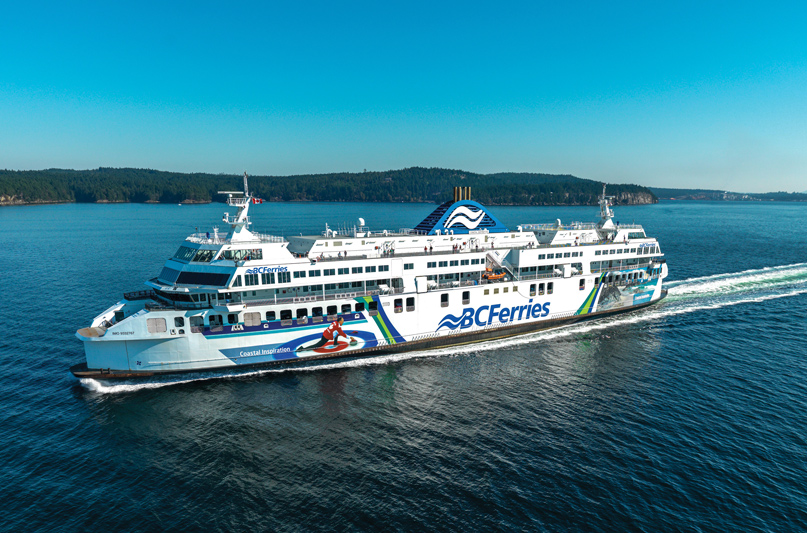 British Columbia Ferry Services, Inc., better known as BC Ferries, plans to replace the aging inter-island fleet with five new ferries of two different classes, and, hopefully, they’ll be built right at home in British Columbia. “We are doing a tremendous amount of work with local industry,” says Mark Wilson, BC Ferries vice-president of strategy and community engagement, speaking in favor of B.C. shipyards. “We are doing everything that we can to create the conditions for local industry to bid and submit the best that they can on this.” The company will take cost, product, timeline, and risk into consideration.
British Columbia Ferry Services, Inc., better known as BC Ferries, plans to replace the aging inter-island fleet with five new ferries of two different classes, and, hopefully, they’ll be built right at home in British Columbia. “We are doing a tremendous amount of work with local industry,” says Mark Wilson, BC Ferries vice-president of strategy and community engagement, speaking in favor of B.C. shipyards. “We are doing everything that we can to create the conditions for local industry to bid and submit the best that they can on this.” The company will take cost, product, timeline, and risk into consideration.
Two models will be ordered for the new small inter-island ferries. The 107-meter-long Salish class holds 600 passengers and crew and the 81-meter-long Island class has room for 300 passengers and crew.
The total number of ordered ferries will be announced as we’re headed to press, but as of now, the Victoria-built Mayne Queen, Bowen Queen, and Powell River Queen—all 53 years old—are set to retire. But smaller ferries aren’t the only new vessels in the works. Five of their fleet’s larger Victoria-built C-class ships that carry up to 1,500 passengers need to be replaced, and BC Ferries has already requested proposals for naval architect and engineering support to create bid packages and review shipyards’ proposals for this project.
According to the Vancouver Sun, hundreds of millions of dollars in ferry construction has gone to Europe. Just last year, $200 million was spent on three new Salish class ferries for BC Ferries, an independent company that is subsidized by the B.C. government. Local shipyard workers have lobbied for a shipbuilding industry in B.C. for years. Premier John Horgan explains, “The benefits to the community of having shipbuilding jobs in a maritime province are significant and those have diminished over time because of the policy choices of the previous government. And we are looking at what policy changes we can make to revitalize the shipbuilding industry.” Horgan is doing what he can to assist the workers in B.C. and is “looking at all options available to make sure there are community benefits when public monies are expanded.”
Allied Shipbuilders Ltd. Of North Vancouver President Chuck Ko explains, “There’s no recognition of the social benefits of building ships in B.C. Adding such work would provide high-paying work.” Many unionized companies in B.C. can’t compete with Polish shipyards that pay lower wages, such as the shipyard that built the most recent order of Salish class ferries. BC Ferries spokeswoman Tessa Humphries says it’s the first step to a new major local vessel construction. The bid package is expected in the next few years with the first new vessel projected to go into service by 2024. Costs aren’t yet available.